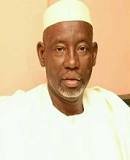The Jigawa State Government has initiated the drilling of 47 solar-powered boreholes under the World Bank-Assisted Agro-Climatic Resilience in Semi-Arid Landscapes (ACReSAL) Project.
Governor Umar Namadi, during the official launch ceremony in Masaya, Birnin Kudu Local Government Area, emphasized the significance of clean and accessible water in improving public health, economic development, and climate resilience.
He underscored the state government’s commitment to achieving universal access to safe drinking water, a fundamental human right.
The 47 solar-powered boreholes, with a combined capacity of approximately 10,000 cubic liters per day, will be constructed in three locations: Masaya, Gumel Government Girls Arabic School, and Hadejia Specialist Hospital.
In addition to the boreholes, the project will include the construction of water storage tanks, office blocks, and solar-powered security systems.
The total cost of the project is estimated at over 2.2 billion naira.
Governor Namadi called on community members to protect and maintain the project infrastructure, ensuring its sustainability for future generations.
He also urged contractors to adhere to project timelines and specifications.
By implementing this project, the Jigawa State Government aims to address water scarcity, improve public health, and enhance agricultural productivity in the state.



